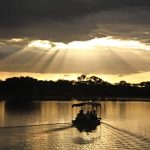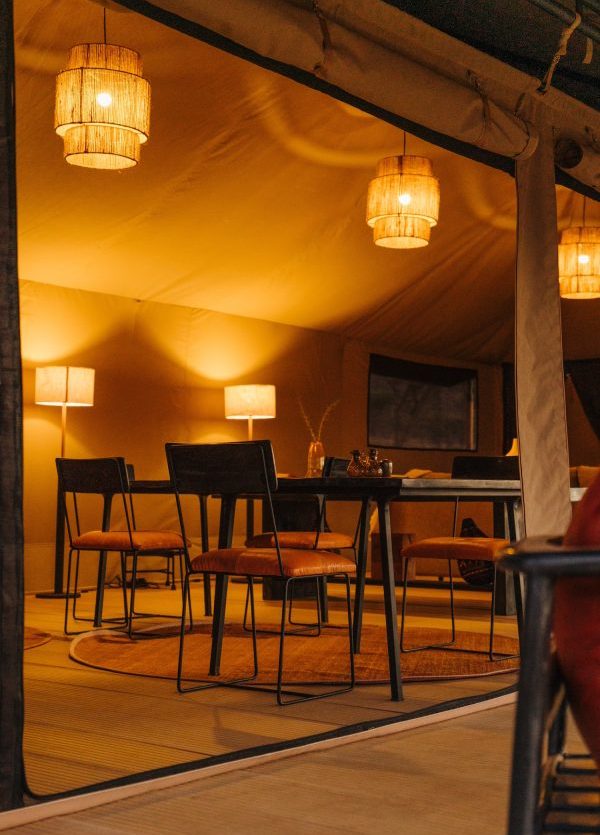Tanzania Travel FAQ’s
Do I need a visa to travel to Tanzania?
Tanzania does require 6-months of validity on a passport and a tourist visa, which can be purchased at the airport upon arrival.
Is tipping customary in Tanzania?
Feel free to tip your guide $10 or more based on the quality of your tour; otherwise, you can leave marginal or small tips in hotels and restaurants. Tips are usually appreciated but not generally expected.
What is internet access like in Tanzania?
Since most of our tours through Tanzania are safari expeditions, it is unlikely that you will have internet access unless you are staying at one of the more luxurious hotels, and even then the access is not guaranteed. You should go with the assumption that you will not have internet access for most of your trip.
Can I use my cell phone while in Tanzania?
Since you will be on a safari-type expedition, during parts of your trip it’s unlikely that you will be close enough to any cell towers to be able to use your cell phone.
Do I need power adapters?
The power grid in Tanzania is 220-240v, meaning that you will need a converter for any 110v devices that can’t handle the higher voltage. Depending on where you are, you will also encounter both Type G (BS-1363) plugs and Type D (BS-546) outlets, which require converters.
What are the toilets like in Tanzania?
Camp, inn, lodge, or hotel, your Tanzania accommodations will offer a western-style bowl toilet that flushes. It’s possible that if you are in more rural parts of the country on an expedition that you’ll encounter a squat toilet.
Can I drink the water in Tanzania?
Tap water in Tanzania is not safe to drink. Only drink the filtered or bottled water provided to you by the company and lodges..
Are credit cards accepted in Tanzania? Will I be able to find ATMs?
Except in the cities, you probably won’t find any ATMs or card-accepting businesses on your Tanzania safari, but don’t worry- that’s why our trips are all-inclusive. When you arrive you can take out just enough cash for any tips or souvenirs and then you’ll be set for the trip.
Best age to take kids on safari?
Opinions can differ on this, as it does depend on what your goals are as a family for the safari holiday, but as a guide we say that children who are 7 and over will get the most out of a safari. This is not to say that children younger than that should not go on a safari – it’s perfectly possible if suitable camps and lodges are chosen for the itinerary, and the day to day planning factors in all necessary elements to make the experience smooth for everyone. A 4-year old can have a great safari experience if they have adequate rest time built into the day, a private vehicle is factored in, and sleeping arrangements suit the whole family.
We are experienced in planning safaris for families of all ages and sizes.
How do I know which trip is right for me?
That’s where we step in. We will listen, take everything into consideration and advise. We do this day in, day out and have worked with hundreds of clients. Rest assured, you are in good hands.
Will we need any vaccinations or medication?
The vaccination requirements for entry into Tanzania vary depending on where you are travelling from, for example, Yellow Fever. We advise asking your doctor for the latest advice.
As we are not medical professionals, and we don’t know your family’s medical history, we can’t advise on what medications may be suitable for you to take for your trip, however we can point you in the right direction. You may visit are malarial so this also needs to be taken into consideration.
Do I need a visa?
Almost certainly, although this does vary depending on your nationality. Visas can almost always be obtained well before your date of travel, which we recommend. Often, children under a certain age do not require a visa. They can be bought on arrival into Tanzania but you will have to queue.
How much validity does my passport need?
Usually, in order to be able to clear immigration, your passport needs to be valid for at least 6 months after date of entry. It’s also wise to make sure
you have at least 6 blank pages in it (not counting the very last page) – the stamps for some countries’ visas can take up a whole page.
Do I need travel insurance?
It is a condition of acceptance that you will have adequate travel insurance in place from the moment your booking is confirmed. Your travel insurance must cover you for both local and international medical repatriation, cancellation and curtailment cover, and the more standard cover, i.e. money, delayed flights, lost passports etc. It must also cover you for any activities you intend to do on your holiday. Your responsibility is to ascertain from the insurance company that no exclusions are applied to your policy; for example, some travel and medical insurances do not cover mountain climbing above 6,000 meters above sea level, ballooning or scuba diving.
What is the climate in Tanzania?
As Tanzania lies just south of the equator, there is little seasonal variation in temperature, but it is slightly cooler in June/July and warmer in January and February. There is much more variation between the coastal and low lying regions and the high plains and mountainous regions.
There are two rainy seasons – the long rains during late March and late May and the short rains in November. The rest months are categorized as dry season. In practice the rainfall pattern is neither regular nor predictable.
The Great Northern Parks lie at an altitude of 5,000 to 19.340 feet, Kilimanjaro being the highest to have a pleasant climate with warm days and cooler evenings year round. Between June and October, temperatures range from around 10°C in the northern highlands to about 23°C on the coast. On the plains and the lower-altitude game reserves, the temperatures from June to October are warm and mild. On the coast, these months are some of the most pleasant to visit, with balmy, sunny weather much of the day and cooling ocean breezes at night. From December to March, the days are hot and sunny with often no even a cloud in the sky. Temperatures range from the mid-twenties to the low thirties throughout the country while visitors flock to the parks and beaches to escape the dreariness of late
Will I be able to use foreign currency?
The local unit of currency in Tanzania is Tanzanian Shilling (TSh) which is convertible freely for US Dollar, Euro, and other currencies within Tanzania. There are several places in Tanzania you can exchange your money/traveller’s cheques but it is advisable that you exchange your money only in hotels, banks, bureau de change and your tour operator for avoiding inconveniences and being coned.
It is illegal to export more than a small amount of Tanzanian Shilling. Many items or services are priced and paid for in US Dollar, so do not convert more funds into the local currency than you may need for incidental expenses
How much does a safari cost?
How long is a piece of string? In truth, there is no easy answer as the cost per person will vary depending on the level of accommodation you are looking for, the time of year you want to travel, and if there is any specific activities you want to include.
That said, as a very rough guide, we would say $5,900 – $10,000 per adult for 12 nights.
Do I require visa?
Visitors to Tanzania apart from valid passport require visas with the exception of citizens of the commonwealth and Scandinavian countries. Visa can be obtained from any Tanzania’s diplomatic mission or consulate abroad, at main entry points or by writing to the principal immigration officer (P.O. Box 512, Dar es Salaam-Tanzania). Find more information about visa and application here.
Which is the best time for great migration?
Usually migration depend on weather condition although should be between the months of December to early March. Calving which takes place in southern Serengeti is in February mostly but not predictable as depends on weather. If rains come late then even calving is postponed naturally.
What is the International Flight to Tanzania?
The main entry points are the international airports Kilimanjaro International Airport (JRO, intl. airport for Arusha and Moshi), Julius NyerereInternational Airport (DAR, airport for Dar es Salaam) and Abeid Amani Karume International Airport (ZNZ, airport for Zanzibar City). For flights toNairobi, road and air transfers to Arusha are also possible (keep in mind you will need a Kenyan Transit Visa).
Most of our guests fly with the following airlines:
- KLM (via Amsterdam to Kilimanjaro or Dar es Salaam)
- Ethiopian Airlines (via Addis Abbaba to Kilimanjaro or Zanzibar)
- British Airways (via London to Dar es Salaam)
- Oman Air (via Muscat to Zanzibar)
- Emirates (via Dubai to Dar es Salaam)
- Swiss Air (via Zurich to Dar es Salaam and Nairobi)
- Condor (Frankfurt direct to Kilimanjaro 1x weekly, not during the long rains April / May)
- Turkish Airlines (via Istanbul to Kilimanjaro, Nairobi and Dar es Salaam)
- Qatar Airways (via Doha to Kilimanjaro or Dar es Salaam)
- Lufthansa (via Frankfurt to Nairobi)
- Eurowings discover NEW! (via Frankfurt to Kilimanjaro)
- Edelweiss NEW! (via Zurich to Kilimanjaro)
However, there are other (charter) airlines and options available and we will be happy to help with any questions. If you plan to start your journey in Arusha, it is recommended to fly directly to Kilimanjaro International Airport. The airport is served daily by KLM and Ethiopian Airlines. For our South Tanzania Safaris or pure beach holidays we recommend the airports of Dar es Salaam and Zanzibar.
If you are planning a Northern Circuit Safari or Kilimanjaro ascent with subsequent beach holiday, we recommend booking an open jawed flight. Either you land at Kilimanjaro Airport (45 minutes drive from Arusha) and fly from Dar es Salaam or Zanzibar back home, or vice versa.
For domestic connections, for example from Arusha or the Serengeti to Zanzibar, we recommend a flight with one of the following specialized safari airlines:
Recommended Local Flights?
- Auric Air
- Tropical Air
- Precision Air
- Air Tanzania
- Coastal Aviation
- Flightlink
- Regional Air
- Air Excel
- As Salaam Air






